Introduction
If you’re looking for a high-performance, eco-friendly alternative to traditional soil additives, coconut coir—also known as coco coir or coconut fiber—is one of the best choices for your garden.
Derived from the coconut husk, this versatile material has become a favorite among gardeners for its ability to retain water, improve soil structure, and support healthy plant growth. Whether you’re working with sandy soil, starting seeds, or filling garden beds, coco coir soil is a reliable, sustainable solution that delivers consistent results.

What Is Coconut Coir?
Coconut coir (or coco peat) is a natural byproduct of coir production, where the fibrous material between a coconut’s outer shell and inner seed is processed into usable growing materials. Once cleaned, ground, and soaked in water, it can be compressed into peat bricks, coir bricks, or packaged as loose coco fiber.
When rehydrated, these coco coir products expand into a fluffy, sponge-like material that holds moisture exceptionally well while creating essential air pockets that allow plant roots to breathe. This unique balance of moisture retention and aeration makes coconut coir for plants an excellent choice for both beginner and advanced gardeners.
If you want to see how it’s used in action, check out this helpful Grow Organic video on using coco coir as a soil amendment in your organic garden.

Why Gardeners Love Coco Coir Soil
1. Excellent Moisture Retention and Drainage
One of the top benefits of coco coir is its incredible ability to retain water—up to 10 times its weight—while still draining efficiently. This means your plants get consistent hydration without sitting in soggy soil. Coco coir is especially valuable in hot, dry climates where maintaining soil moisture can be a challenge.
Products like the Coco Peat 4.5 Cu Ft Brick or the smaller Coco Peat 1.3 Cu Ft Brick are great options for preparing moisture-retentive garden soil or improving your potting mix.
2. Improves Soil Structure and Aeration
Healthy roots need oxygen as much as they need water. Coconut fiber for plants naturally creates air pockets in the soil, promoting strong root development and better nutrient absorption. Mixing coco coir soil into dense or sandy soil helps improve soil texture and maintain the perfect balance between moisture and airflow.
This is why many gardeners use coco coir as a soil amendment in raised beds or container gardens—it keeps the soil loose, fluffy, and nutrient-efficient.
3. Ideal for Potting Mixes and Seed Starting
Coco peat and coco coir products are widely used in growing mediums and potting soil because they’re lightweight, sterile, and easy to manage. Their natural cation exchange capacity helps hold onto essential added nutrients like calcium, magnesium, and potassium, keeping them available to plant roots.
You can find premium blends like FoxFarm Bush Doctor Coco Loco Potting Mix that combine coconut coir with other organic materials for outstanding results in containers, seed starting, or indoor gardening.
4. Long-Lasting and Sustainable
Unlike peat moss, which is harvested from slow-forming bogs, coir production uses a renewable resource—the outer coconut husk. High-quality coir products like Just Coir 2 Cu Ft and Beats Peat 3 Cu Ft Brick provide a long-lasting grow medium that can be reused across multiple growing seasons.
Coco coir doesn’t compact or break down quickly, which means it maintains its structure and water-holding ability over time—a major plus for sustainable gardeners who value durability and performance.

How to Use Coconut Coir in the Garden
To use coco coir effectively, start by soaking coir bricks or peat bricks in water until they expand. The material will soften into a rich, earthy texture similar to peat moss but lighter and more resilient. Once hydrated, it’s ready to mix into your garden soil, potting mix, or raised garden beds.
You can blend it in equal parts with compost and perlite for an all-purpose growing media that offers excellent moisture retention and nutrient delivery. For mulch alternatives, products like the Miracle Mulch Compressed Brick can help suppress weeds and reduce evaporation around plants.
For container gardening, consider coconut fiber round pots like these Coconut Fiber Round Pots (4-Pack), which promote air pruning and healthier root systems.
The Benefits of Coconut Coir at a Glance
- Enhances water retention while maintaining aeration
- Suitable for all growing mediums, from containers to garden beds
- Improves drainage in sandy soil and prevents compaction in clay
- Provides a neutral pH and supports added nutrients for strong plant growth
- A renewable, sustainable soil amendment alternative to peat moss
- Long-lasting structure with high moisture retention capacity
For gardeners looking for performance and sustainability, coco coir soil offers the best of both worlds.

In Summary
Coconut fiber for plants is more than a sustainable option—it’s a high-performing grow medium that supports stronger roots, better hydration, and healthier growth.
Whether you’re amending garden soil, starting seeds, or preparing containers, coco coir soil delivers impressive results that both you and your plants will love.



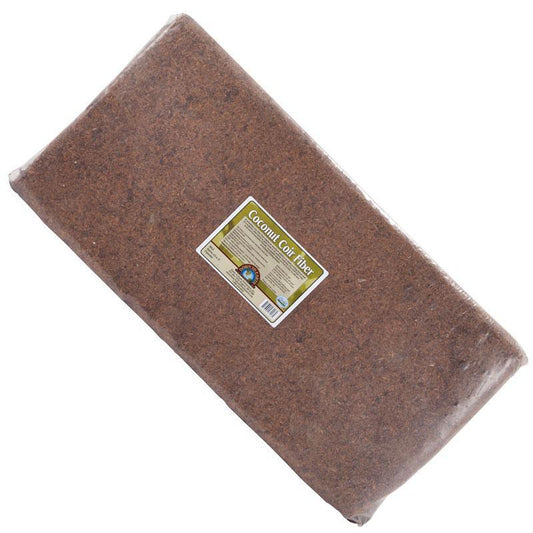
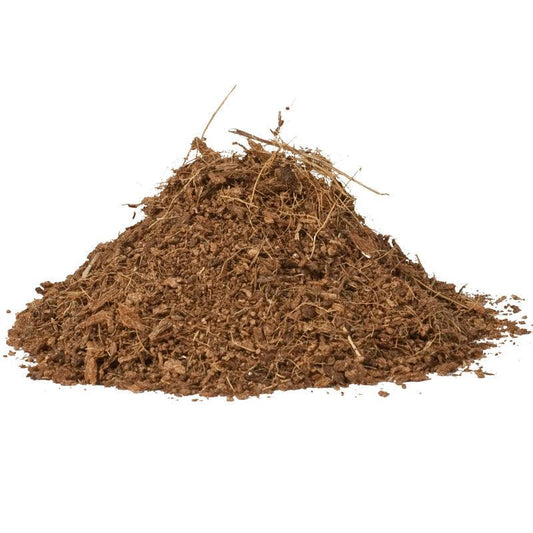
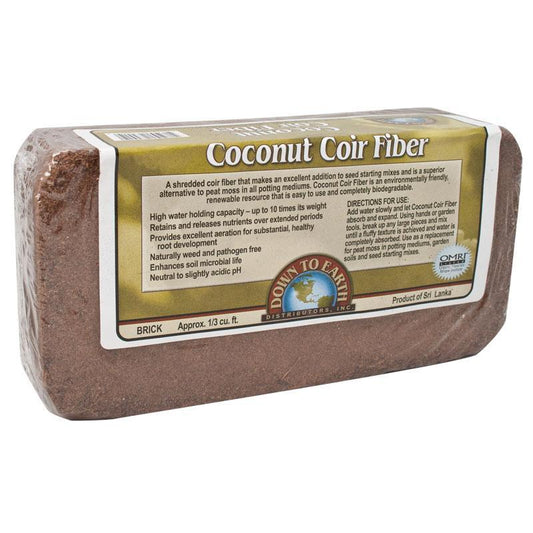
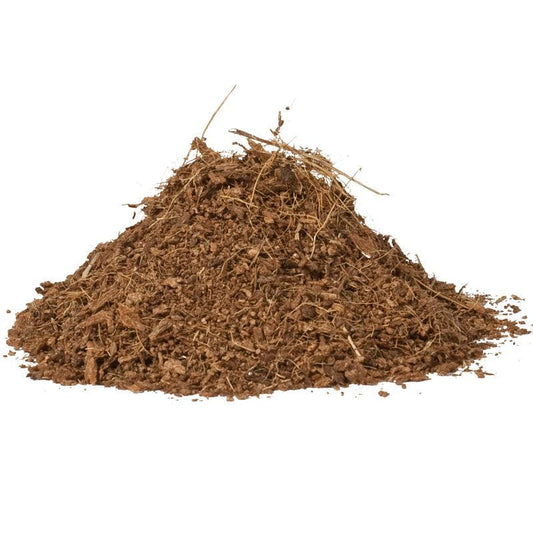
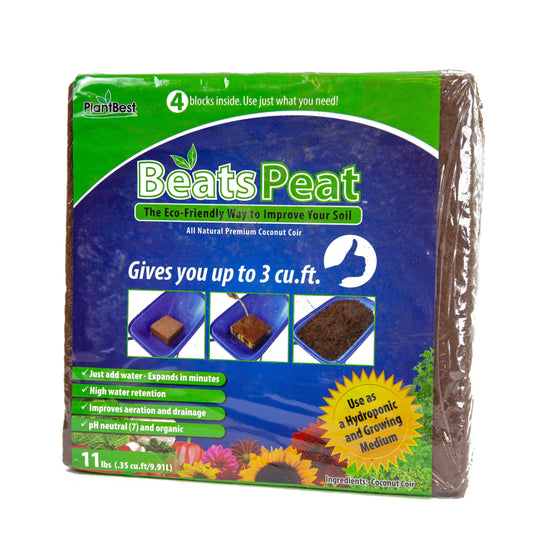
19 comments
Silas, you can amend with compost if you have very heavy compact soil. Compost will feed the soil microbes better than coco coir, but if you don’t have compost coco coir will also help improve the tilth of your soil.
Is it advisable to use coco coir in the soil mix when growing apricots? I have read that apricots need well drained soil, but it sounds as if coco coir improves both the water retention AND the drainage of the soil.
Gummy, you can add coco coir as a soil amendment to your existing soil. It does not provide any nutrition to your plants, but is great for loosening up clay soil and helps to improve the water holding capacity as well. I would not use it as a soil replacement though.
Can I use Coconut coir fiber as soil based mixture in planting honeydew melon?
Wow such a nice post on coco coir. Now i can know about coco coir and its benefits, uses.
Thanks for sharing.